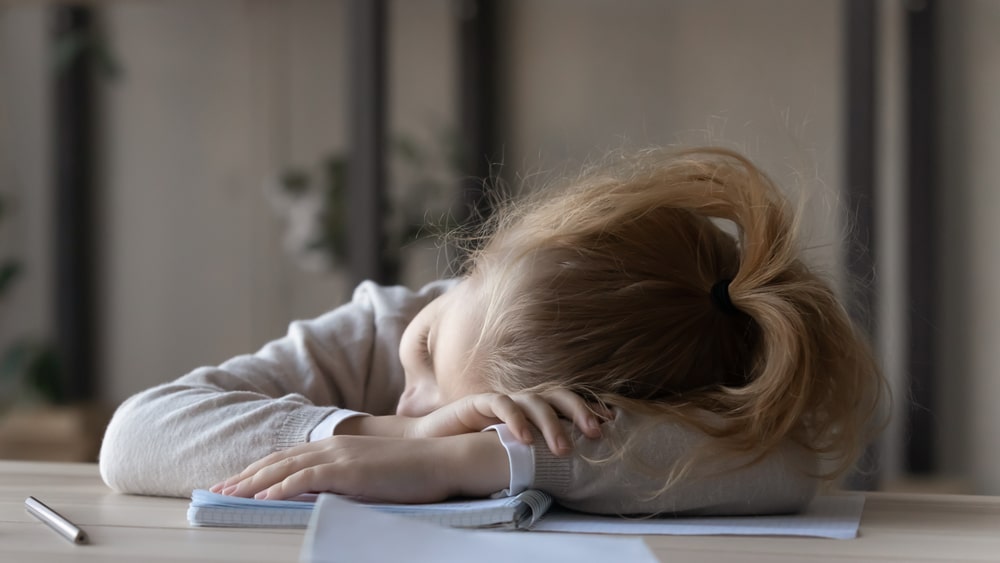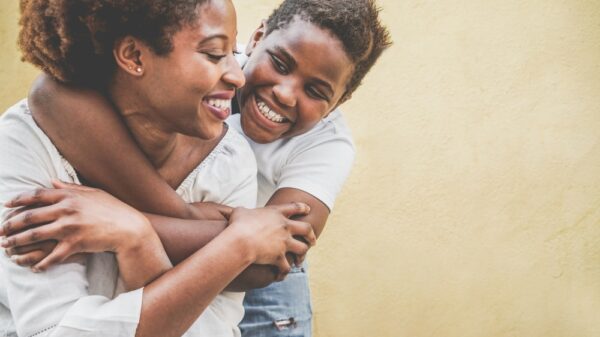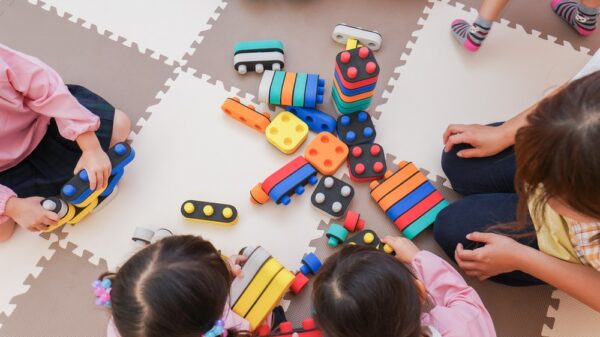As a parent, navigating your child’s sleep patterns can often resemble a relentless uphill struggle. The blend of school demands, extracurricular activities, and family obligations turns bedtime into a nightly negotiation. However, sleep is not just a luxury; it is essential for your child’s physical and mental well-being. While establishing a steadfast sleep routine may appear daunting for busy families, it is not only feasible but vital for fostering emotional and cognitive resilience in children.
Clinical psychologist Dr. Brian Razzino highlights the fundamental importance of sleep as a cornerstone of mental health. He offers a telling analogy: “Think of sleep as the foundation of a house—if it’s shaky, everything built on it becomes unsteady.” Chronic lack of sleep can destabilize emotional balance, rendering children more vulnerable to mood fluctuations, stress, and anxiety. This issue is not merely about fatigue; it has lasting implications for your child’s capacity to navigate life’s highs and lows.
Dr. Razzino elaborates on our emotional health using the idea of an “emotional blueprint,” which serves as the bedrock for how we process and express our feelings. Consistently poor sleep can significantly impact mood regulation and emotional stability. A 2020 review in the National Library of Medicine identified a strong correlation between chronic sleep deprivation and mental health disorders such as anxiety and depression. Children with sleep issues are not merely experiencing one difficult night; they face a heightened risk of enduring serious mental health challenges later.
“Over time, insufficient sleep is closely tied to a higher likelihood of clinical depression and severe anxiety disorders,” Dr. Razzino emphasizes. This situation is reciprocal: children with sleep disruptions are often more susceptible to emotional difficulties and behavioral challenges. Research from 2024 conducted by sleep expert Evelyn Touchette and her colleagues indicates that children experiencing sleep problems are at a greater risk for developing issues like depression and ADHD as they reach their teenage years. Dr. Razzino likens a child’s brain to a cluttered office at the end of a long day, where sleep serves to clear out the disorder and prepare for a renewed start.
“Sleep acts as the brain’s overnight maintenance crew,” he explains. While children are asleep, their minds engage in memory consolidation, stress processing, and strengthening critical neural connections for learning. Interruptions to this sleep cycle can hinder these essential tasks, resulting in challenges with emotional regulation and cognitive performance.
Recognizing the connection between sleep and emotional health is crucial, especially as children encounter difficulties managing their emotions and cultivating resilience. It is essential for parents to understand these links and implement effective strategies to promote healthy sleep habits in their children.
Emotional Resilience
Stephanie Drew, a licensed clinical social worker specializing in child and adolescent mental health, further emphasizes the significant advantages of adequate sleep for emotional resilience. “Well-rested kids are far better equipped to manage their emotions and navigate stress,” she observes. Sufficient sleep is vital for developing emotional regulation skills that aid children in addressing the inevitable challenges of life.
Sleep disturbances—such as trouble falling asleep or staying asleep—can have particularly harmful effects. Dr. Razzino cautions that even a single type of sleep disruption can gradually undermine the brain’s nightly “maintenance,” leading to difficulties in managing daily stress, learning efficiently, and establishing healthy emotional patterns.
Sleep-Deprived Parents Suffer, Too
We must not overlook the impact on parents. Sleep deprivation isn’t solely detrimental to children; it profoundly affects adult mental health as well. Rebekka Wall, a certified sleep consultant, notes that chronic lack of sleep raises stress levels, impairs emotional regulation, and diminishes resilience when facing mental and physical challenges. While parents may strive to overcome fatigue, they too require quality sleep to sustain their mental wellness.
“When we’re sleep-deprived, we become irritable and foggy-headed, and the brain areas responsible for managing our emotions don’t function correctly,” explains Wall. This disruption complicates stress management, escalating anxiety and even leading to symptoms of depression. While addressing sleep troubles in children is crucial, parents must also ensure that everyone in the household secures adequate quality rest, especially when caring for younger children.
A study published in the journal *Sleep* in 2019 highlighted the extensive effects of sleep deprivation on family dynamics. Both parents and children can become trapped in a cycle of sleeplessness and emotional unrest, making it imperative for families to view sleep as a crucial requirement rather than an indulgence.
Tackling the complexities of sleep can be daunting, but keep in mind that even small adjustments can lead to significant improvements for both you and your child. Prioritizing sleep is not merely about getting enough hours of rest; it’s about laying the foundation for a healthier, happier family. You are not alone in this endeavor, and making a joint commitment to enhancing sleep can foster a newfound tranquility in your home.
Parents often find themselves in a sleep-deprived state during their children’s early years, particularly in the first six years when nighttime awakenings are common and exhausting. Many moms and dads juggle work, commitments, and parenting responsibilities while operating on little sleep. This deficiency doesn’t only impact parents’ health; individual challenges evolve into family-wide issues, affecting everyone’s emotional and mental well-being.
Dr. Razzino, an expert in childhood sleep, comments, “In a world where many adults are already managing numerous responsibilities, lack of sleep intensifies the difficulties of parenting and work, creating a perfect storm that complicates emotional stability.” This is a daily reality for many parents; sleep deprivation often results in irritability, increased stress, and difficulties connecting with both children and partners. When parents are not functioning at their best, it can cascade into behaviors and moods impacting their kids, establishing a tough cycle to break.
How can we reverse this trend? One of the most effective approaches is to implement solid sleep hygiene within the family. Research from 2018 indicates that children with consistent bedtime routines tend to navigate their day with improved executive function and emotional regulation. In simpler terms, a good night’s sleep paves the way for a more balanced day. Here are some proactive measures parents can take to improve sleep quality for everyone:
Establish Regular Bedtimes: Developing a consistent bedtime routine is crucial. It aligns with the body’s internal clock, making mornings easier and nights more restful. Aim for the same bedtime each night, even on weekends; your family will express gratitude for it come Monday morning.
Engage in Relaxing Rituals: Think about concluding each evening with calming activities. Reading a bedtime story or playing soft music can help your child transition from the buzz of the day into a more tranquil state. It also provides a moment for connection, where both kids and parents can enjoy a peaceful time amidst the chaos.
Limit Screen Time Before Bed: For many children, the lure of screens can be powerful. Set a rule—no screens at least an hour before bedtime. This helps to minimize overstimulation and allows everyone’s mind to unwind for the night.
Create a Sleep-Conducive Environment: Ensure that your child’s bedroom is optimized for sleep success. A dark, quiet, and cool space can be greatly beneficial. Consider investing in blackout curtains or white noise machines. These small adjustments can dramatically improve sleep quality, leading to significant benefits for everyone’s morning restfulness.
When children receive the restorative sleep they need, it inevitably reflects on their parents as well. Dr. Razzino states, “A well-rested child often means a well-rested parent.” There exists a clear connection: when children sleep well, parents tend to experience lower stress levels and enhanced emotional resilience. This dynamic promotes a nurturing home environment filled with understanding and patience.
The link between sleep and mental health is profound. By adopting these sleep hygiene practices, parents can positively influence not only their children’s behavior but also their own emotional health. “Sleep is the foundation for emotional health—strengthen it, and everything else falls into place,” Dr. Razzino emphasizes.
In conclusion, prioritizing sleep hygiene is a win-win for the entire family. It empowers both parents and children to approach the day’s challenges with clarity and a lighter heart, fostering a more balanced and emotionally healthy family dynamic. Remember, you’re not just instilling good sleep habits; you are building the foundation for resilience, connection, and love within your home.
Image Source: fizkes / Shutterstock
























